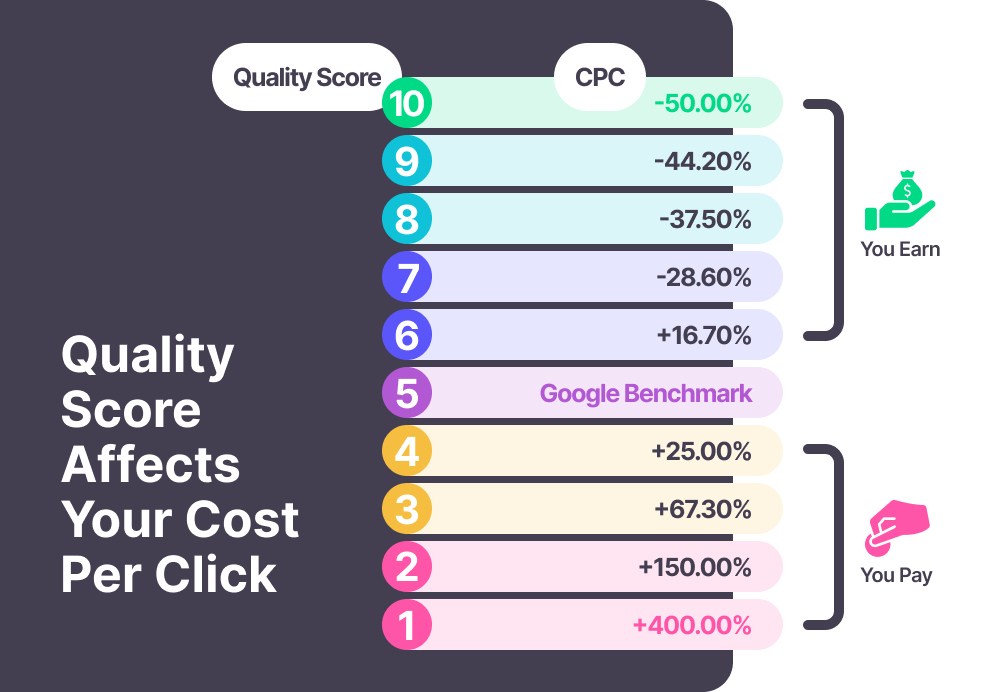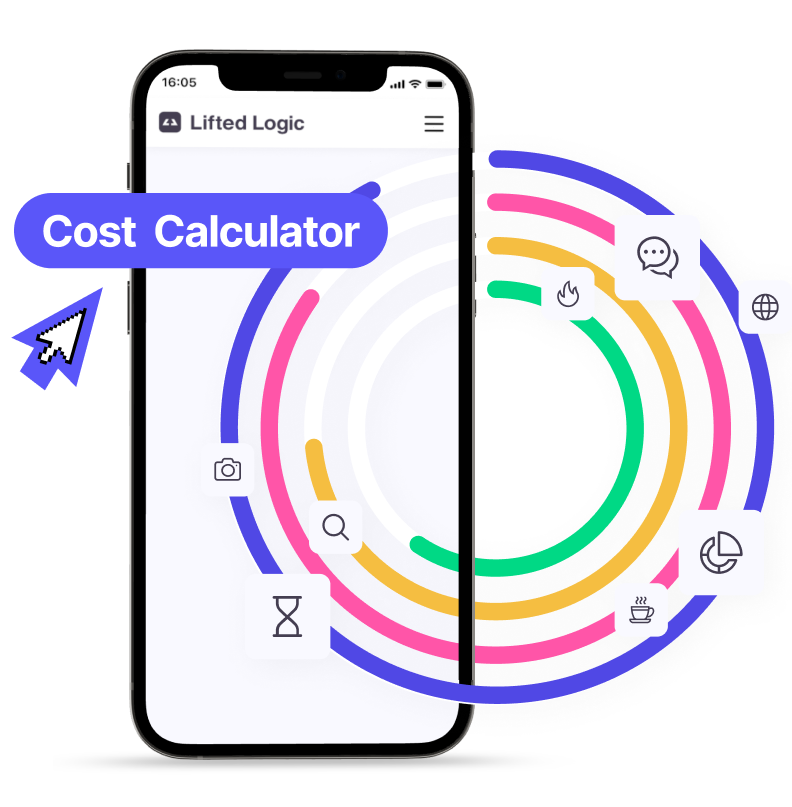At Lifted Logic, we work with hundreds of medical spas across the country to create SEO-based websites that generate leads. When it comes to medical aesthetics marketing, the question we get asked the most is “what about PPC?”
So, what about it? What does PPC look like in the medical aesthetics industry? What do you need to know to make it work? How do you need to set it up? And most importantly, is PPC for med spas worth it?
The answers to all these questions are more personal to your business than you probably think.
What is PPC?
Some people call it CPC, we call it PPC; either way it’s just a digital advertising model where you pay per click instead of per ad placement. Google runs their own platform called Google Ads where you can build and control all of your campaigns within one account—search, display, or video.
You can run pay per click ads on social media platforms like Facebook too, but their algorithms are much less sophisticated.
How does it work?
Say you’re advertising as a tattoo artist in Kansas City. Whenever someone in Kansas City searches for “tattoo artist near me,” you want to be the first advertisement on the results page. If the user clicks on your ad, Google will charge you the amount that they bid for you to show up in that spot on the results page.
Every time someone searches something, there’s a fully automated ad auction taking place on the backend. Google is using the auction to decide how relevant your ads are to the search terms and what order the ads deserve to show up in. The advertisers are the bidders and Google is the auctioneer. But it comes down to more than just how much you’re willing to spend.
The thing you really have to pay attention to is quality score. It’s determined by 3 things:
- Ad relevance
- Expected click through rate
- Landing page experience
Based on these things, Google gives a score out of 10 to each keyword in your account. If your quality scores are low, your ads will show less often and you’ll pay more per click.

If your quality scores are high, you have to spend less to outbid other advertisers for the top ranking spots.
PPC in medical aesthetics marketing: the obstacles
The biggest obstacle in medical aesthetics marketing is Google’s advertising policies around healthcare and restricted drug terms. When you run ads to a website, Google bots crawl the whole thing for anything on this list of drugs, which contains most every injectable on the market. This means that scrubbing your ad copy and landing pages alone isn’t enough to not get flagged.
When Google notices you’re violating these policies, they “limit” your ads in how often they show up. It’s no surprise, but Google doesn’t tell us much about the algorithm behind these limitations.
Running PPC ads for med spas is like speeding on the highway.
Tons of people do it and end up fine, but there’s always a risk of being pulled over. The biggest misconception about these policies is that they’re new. They’ve always been around; there are just more cops on the road now.
So how do people “get away with it?” They don’t. They just are able to maintain high enough quality scores and budgets to be successful within their target area.
There is one hard line: speculative & experimental medical treatment. In aesthetics, this bucket is your PRP, exosomes, stem cell therapy, and any other terms relating to regenerative medicine. If you have these on your site, your ads won’t just be limited, they’ll be disapproved entirely. There is an appeal process, but the best course of action is just to remove the content from your site before running ads.
So is PPC worth it for med spas?
Full transparency, and probably not what you want to hear—but there’s no definite answer. We’ve recommended against clients running PPC campaigns before and probably will again, but it can work. There’s a lot of nuance to this sh*t and it pays to have someone in your corner who understands not just the technical side, but will consider your own unique business’ market, margins, budget, goals, and value of a customer.
Especially for medical aesthetics marketing, you have to reverse engineer your ad spend based on your lead acquisition cost to make it worthwhile. It doesn’t make sense to pick an arbitrary number. Make an estimation based on how much a lead is worth to you.
If you’re willing to spend the money, using Google Ads to get the leads you want is possible using AdWords best practices like SKAGs and strategic negative keywords. We do that for clients now.
What you really have to consider is not how to do it—we’ll take care of that—but whether or not PPC makes sense as a part of your medical aesthetics marketing strategy.
How SEO & PPC work together
Search Engine Optimization (SEO) and PPC are two great examples of marketing strategies that play nice together. When considering both your long and short-term goals, there is probably a place for both.
Think of your website like a concert. SEO is the headliner. The breadwinner. What the people want. PPC is like the opening act. They’re great—you couldn’t have attracted as many people without them—but their true task is to warm up the crowd. PPC is the short-term solution to the long-term problem that strong SEO eliminates.
More about how the best digital marketing strategies include both PPC and SEO →
The only caveat to this analogy is that PPC can only be successful if you’re sending advertisement traffic to a website or page with strong SEO. Page performance and landing page experience are huge factors in the strength of your campaigns.
More about how the best digital marketing strategies include both PPC and SEO →
Questions to ask yourself when considering PPC for your med spa
- Am I in a saturated market?
- What specific services or treatments do I want to advertise for?
- Do I have things in place to achieve a high quality score?
- Am I willing/able to adjust my site content to make my campaigns successful?
- Do I have the internal structure to manage my PPC leads?
- Will my business survive if this doesn’t work?
If you answered yes to these questions, let’s talk
You probably consult with each of your clients before you recommend treatments—we do the same thing before recommending any medical aesthetics marketing strategies.
PPC isn’t for every med spa, or even for every business. Let’s connect and see what we come up with.





